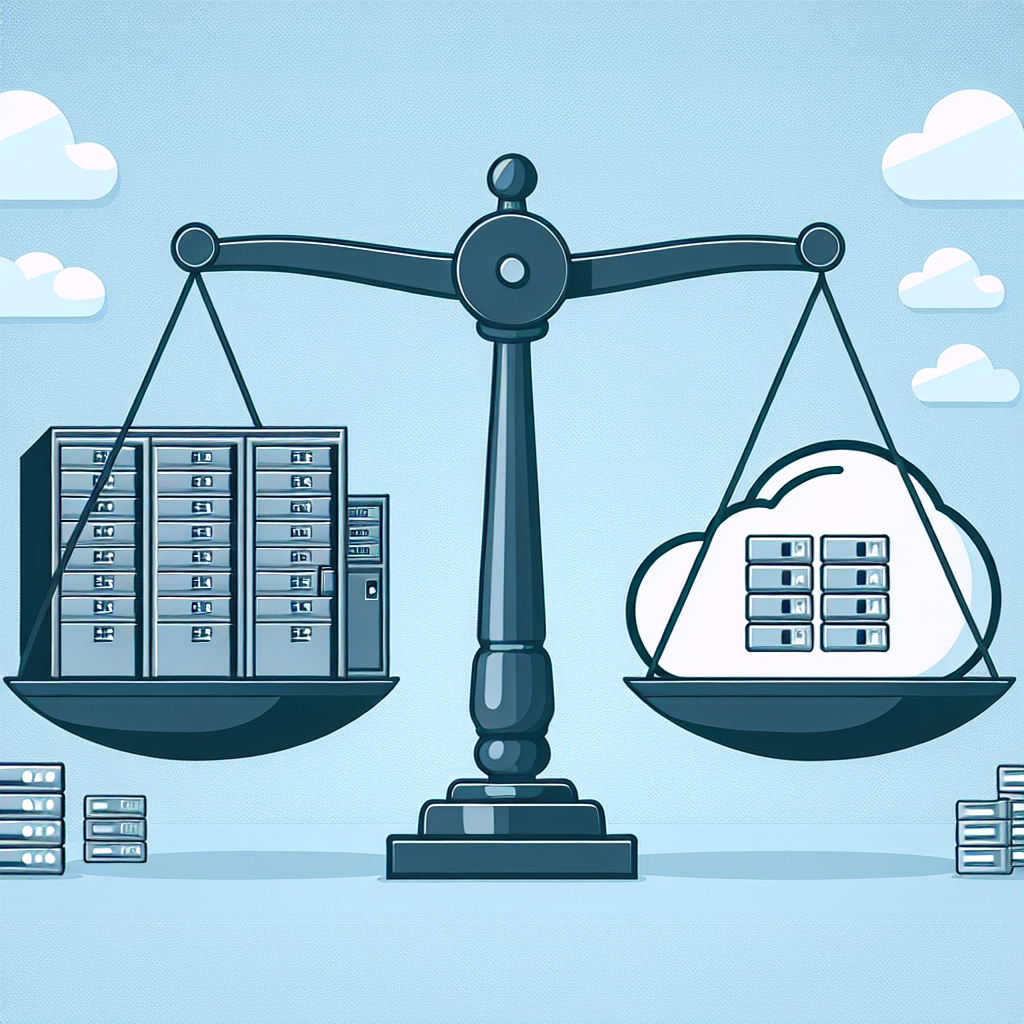Comparing On-Premise vs Cloud Data Storage Solutions
In today’s digital age, businesses are constantly faced with the challenge of storing and managing their ever-growing data. With the rise of cloud computing, many organizations are now considering moving their data storage to the cloud. However, some businesses still prefer to keep their data on-premise. In this article, we will compare on-premise vs cloud data storage solutions to help you make an informed decision for your business.
On-premise data storage refers to storing data within the physical confines of your organization’s premises. This means that you are responsible for purchasing and maintaining the necessary hardware, software, and infrastructure to store and manage your data. On-premise storage offers complete control over your data and allows you to customize your storage solution to meet your specific needs. However, it also requires a significant upfront investment in infrastructure and ongoing maintenance costs.
On the other hand, cloud data storage involves storing your data on remote servers managed by a third-party provider. Cloud storage offers scalability and flexibility, allowing you to easily scale your storage capacity up or down as needed. It also eliminates the need for upfront hardware investments and reduces maintenance costs. Additionally, cloud storage providers typically offer advanced security features to protect your data from cyber threats.
When comparing on-premise vs cloud data storage solutions, there are several factors to consider. Security is a major concern for businesses storing sensitive data. On-premise storage gives you full control over your data security, but it also requires you to implement and maintain robust security measures. Cloud storage providers invest heavily in security measures and have dedicated teams to monitor and protect your data from cyber threats.
Cost is another important factor to consider when choosing between on-premise and cloud data storage. On-premise storage requires upfront investments in hardware and infrastructure, as well as ongoing maintenance costs. Cloud storage, on the other hand, offers a pay-as-you-go pricing model, allowing you to only pay for the storage you use. This can be more cost-effective for businesses with fluctuating storage needs.
Scalability is also a key consideration when comparing on-premise vs cloud data storage solutions. On-premise storage can be limited by the capacity of your hardware, making it difficult to scale up as your data grows. Cloud storage, on the other hand, offers virtually unlimited scalability, allowing you to easily increase your storage capacity as needed.
In conclusion, both on-premise and cloud data storage solutions have their own advantages and disadvantages. On-premise storage offers complete control over your data and security, but can be costly and less scalable. Cloud storage, on the other hand, offers scalability, flexibility, and advanced security features, but can be less customizable and require trust in a third-party provider. Ultimately, the best storage solution for your business will depend on your specific needs, budget, and security requirements.


